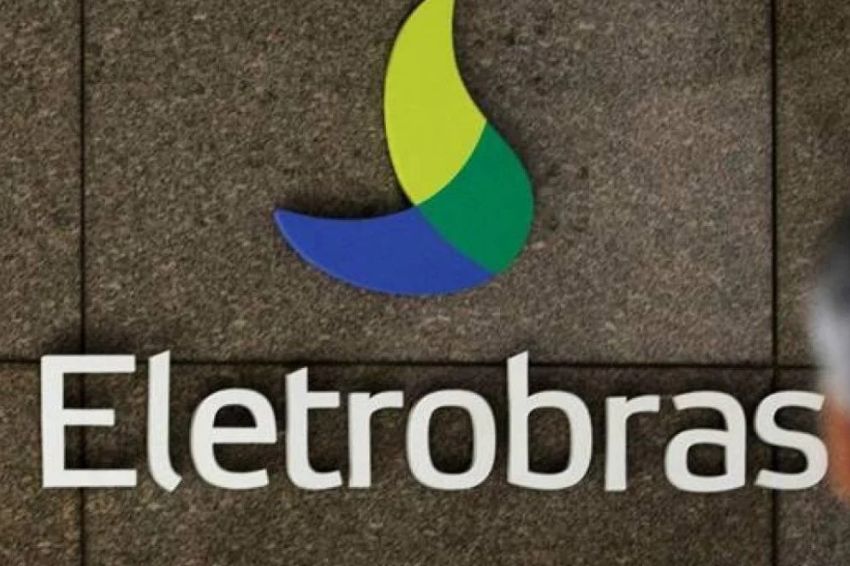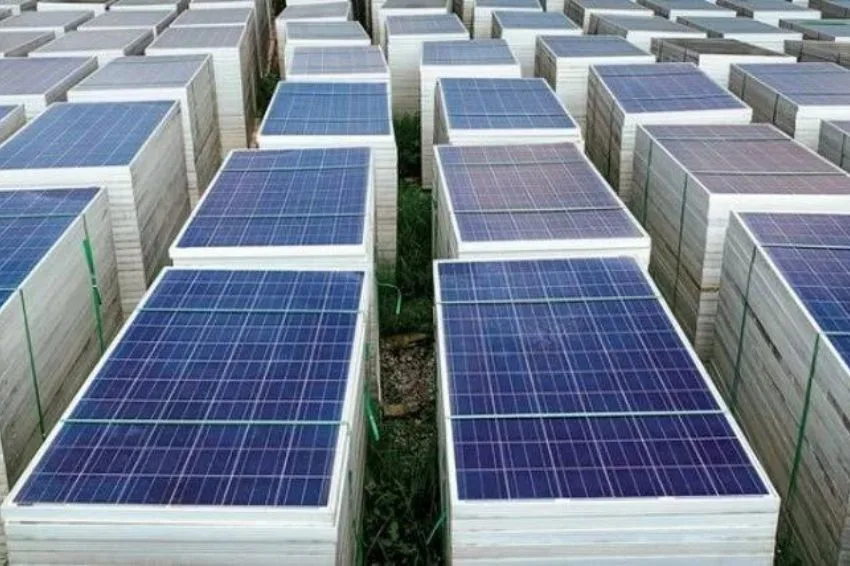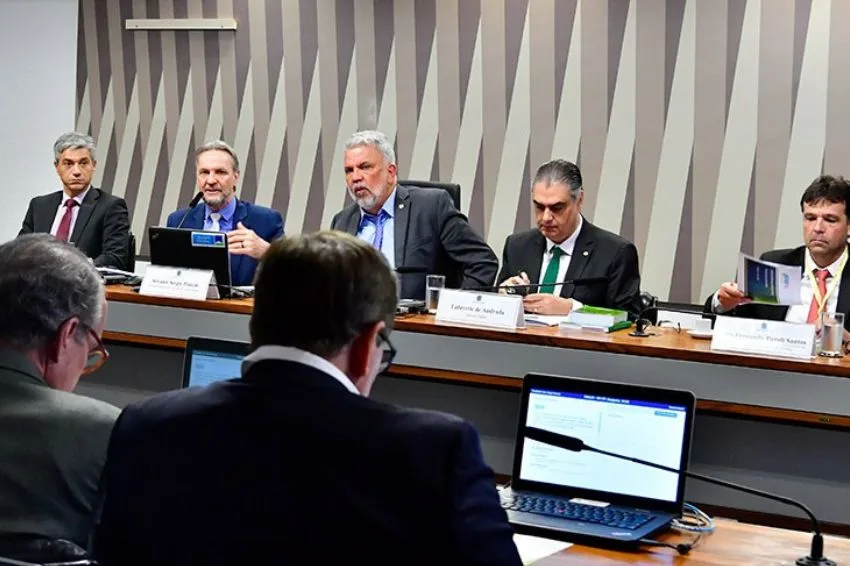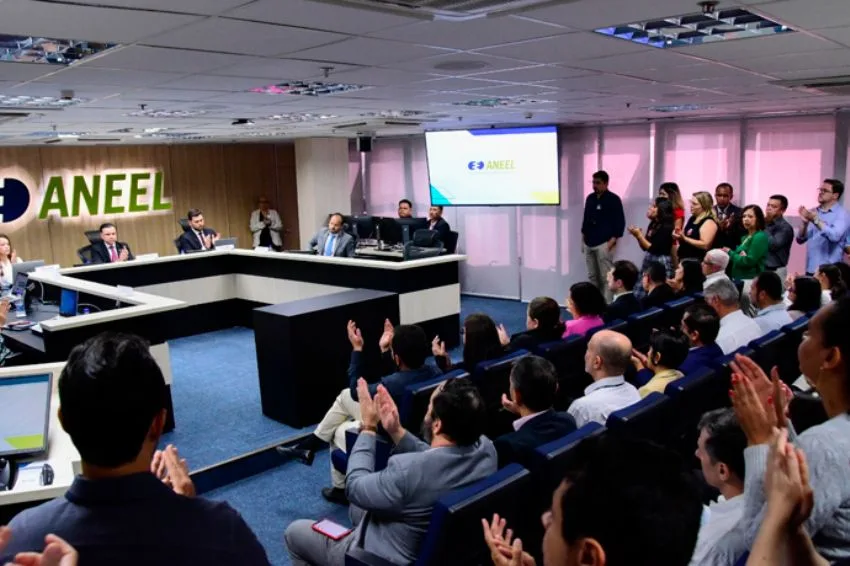A AGU (Attorney General of the Union) filed last Friday (5) an action requesting an injunction requesting the STF (Supreme Federal Court) that removes the rule that prohibits shareholders or groups of shareholders from voting in a number greater than 10% of Eletrobras' voting capital.
In an interview with CNN on Monday (8), the minister of MME (Ministry of Mines and Energy), Alexandre Silveira, said that the action seeks to reestablish the “political rights of the Union” at Eletrobras and, therefore, there is no need to talk about the renationalization of the company.
For him, the corporation model is unbalanced, as the Union has around 43% of common shares (considering direct control and other forms of participation), but is only entitled to one representative on the company's Board of Directors, when what would be fair would be have at least four members, so that the State, as an implementer of public policies, can have a greater participation in the management of Eletrobras.
According to the minister, Eletrobras is strategic for the national electricity sector. “In my opinion [the electricity sector] must have a firm hand from the State, to guarantee energy security, reasonable tariffs and fair prices, so that the country can grow, so that the humblest population can have access to right to have energy. The Union can only have one participant out of nine members, which is creating complete disproportionality.”
He said that ADI does not discuss the merits of the privatization of Eletrobras, which will take place in 2022, which does not prevent the legal possibility of even discussing privatization, but that this is not on the agenda at this time.
The rule questioned by the AGU through the proposed ADI (Direct Action of Unconstitutionality) was originally adopted with the aim of promoting the “pulverization of shares” of the company, preventing it from being controlled by economic groups that would divert it from its social interest purposes. .
However, in the ADI's reasons, the AGU argues that, instead of fulfilling the purpose for which they were established, the devices had the practical effect of indirectly expropriating the Union's political powers in the company.
For the Advocate General of the Union, Jorge Messias, considering the public interest of the matter, it is legitimate to search for an interpretation of the law that allows the Union to fully exercise its political rights in Eletrobrás in a manner proportional to the public capital invested in it.
“We cannot forget that the Union is responsible for managing the Brazilian electrical system”, he says. “Any crisis that affects the company cannot fail to be resolved except in the sense of preserving its activity, which means, ultimately, the very continuity of the national economy”, he adds.
Eletrobrás is the largest electrical energy company in Latin America, responsible for the operation of 101 power generation plants from different sources, with an installed capacity of 42.6 thousand MW, and 73.8 thousand kilometers of transmission lines all over the country. It directly employs around ten thousand people. In 2022, it had a net profit of R$ 3.6 billion.
What does Eletrobras say?
The company published a relevant fact at the CVM (Securities Commission) in which it states that the privatization process occurred “faithfully to the legally stipulated procedure, conducted by BNDES and deliberated by CPPI (Investment Partnership Program Council), subject to wide debate and approval in the National Congress, in addition to prior examination and validation by the TCU (Federal Audit Court)”.
He recalled that at the time, “four other ADIs were filed questioning the same Law No. 14,182/2021, in which there was no grant of an injunction that in any way would impact the consummation of the privatization process”.
He also highlighted that the shareholders contributed, through a capital increase, sufficient resources for the payment of R$ 26.7 billion, made on June 20, 2022, to the Union, as a grant bonus, in addition to the company having already made the payment of certain installments of the obligations of the CDE and Regional Funds, which together total around RS 6.8 billion reverted, to date, in favor of the federal government and society.
In addition to these payments, Eletrobras recorded in June 2022, a total balance payable relating to the grant and obligations of around R$ 40.4 billion.
“The company believes that the privatization process was conducted in accordance with Law no. 14,182 and the Constitution, and informs that it will evaluate the measures that should eventually be adopted by the Company with a view to maintaining a reliable environment for Eletrobras to make investments in the country and the legal security of all its shareholders and the market in general”.
Check out the questions and answers presented by the Government about the ADI.
What is the objective of the ADI filed by AGU regarding Eletrobrás?
In essence, the objective is to protect public assets and interests. It is to ensure the Union's right to vote, as a shareholder of Eletrobrás, in a manner proportional to the participation it holds in the company's share capital. Today, even after privatization, the Union owns around 43% of the company's common shares (considering direct control and other forms of participation). However, due to a rule imposed by Law No. 14,182/2021 (Eletrobrás Privatization Law), its voting power was reduced to less than ten percent of the voting capital.
What is actually being asked of the STF with the action?
The action asks the Supreme Court to interpret the Eletrobrás Privatization Law to remove the rule contained therein, in the part relating to shares held by the Union, which prohibits a shareholder or group of shareholders of Eletrobrás from voting in numbers greater than ten percent. the number of shares into which the company's voting capital is divided. This prohibition appears in article 3, item III, paragraphs “a” and “b” of Law No. 14,182/2021, and was also incorporated into the Company's Bylaws, in its art. 6th. There was a request for an injunction in the action to immediately and partially suspend the effectiveness of such devices, with retroactive effects, until the final judgment of the case, so that they are only applicable to the voting rights relating to shares acquired after the privatization of the company. Eletrobras.
In case of a decision in favor of the Union, will the company be nationalized again?
The ADI does not discuss the privatization process of the company, which will continue under private management. As mentioned, the object of the action is the protection of public interest and assets by obtaining an adequate interpretation of the legislation so that the Union can participate in the management of Eletrobrás in a manner proportional to the public investment it has in the company, and its responsibility in the management of energy resources.
Is the rule being questioned not beneficial to the company as it prevents its control by shareholders without commitment to its social purposes?
As explained in the initial petition, the questioned devices aim to prevent control of the company – essential for the proper functioning of the Brazilian electrical system – from being, in fact, handed over to a group uncommitted to social interests. However, it was observed that, in practice, the interpretation given by Eletrobrás to the rule only resulted in a disproportionate and unjustifiable burden for the Union, compromising the political and economic rights of the State.
From a legal point of view, it is understood that an illegitimate burden was imposed on the Union (and its group) and the social interest for the benefit of other private shareholders of the company. In the context of the efficiency of Public Administration, and considering the circumstances of privatization, it is understood that there is no plausible justification for the Union to own more than ten percent of common shares in the share capital of the privatized Eletrobrás, if its voting rights are limited to that level.
Isn't limiting the number of votes per shareholder a common market practice?
In national, or even international, corporate practice, the limitation on the number of votes of each shareholder, as provided for in art. 110, § 1, of Law No. 6,404/1976 (SA Law), is only approved at a general meeting of shareholders after the common capital of that company has already been dispersed. This occurs because there is no legal-economic reason for a controlling shareholder to self-apply a restriction that is not beneficial to him. In the case of the privatization of Eletrobrás, there was an inversion of this corporate logic because the imposition of a rule limiting the number of votes was approved before the effective dilution of the company's ordinary capital, affecting, precisely for this reason, only the Union's shareholding in the company (which maintained around 43% of common shares), clearly favoring private minority shareholders.
Why does the initial petition claim that the current rule harms Eletrobrás' privatization model?
In fact, as explained above, in addition to harming the Union, the questioned provisions create a perverse incentive, which is contrary to the realization of the privatization model provided for in the Eletrobrás Privatization Law. This model foresees the dilution of the Union's share capital through new contributions of resources (investments) to the company, through the offer of new common shares.
It turns out that the offer of new shares would also impact the political power of the current minority shareholders, who exercise de facto control of the company. In this way, the ten percent limitation – which solely and exclusively affects the dominical public asset owned by the Union – encourages the maintenance of the status quo, in which small shareholders de facto control the company to the detriment of the Union's political power in the assemblies.
What is the impact of a possible decision in favor of the Union on the company's activities?
The company will continue to carry out its activities as normal. There is the interest of all partners, whether public or private, in ensuring that the company has good results, generates profits and fulfills its social purpose as an indispensable company for national economic activity.
From the perspective of public interest, the AGU understands that it is a legitimate interpretation that allows the Union to fully exercise its political rights in society in a manner proportional to the public capital invested and its responsibility in managing the basic structure of the Brazilian electrical system. It is worth highlighting that, due to the company's relevance to the country, any crisis that affects it cannot fail to be resolved except in the sense of fully preserving its activities.
Why is it argued that the company is under the de facto control of minority shareholders?
This argument is demonstrated by facts. As narrated in the initial petition, there is not a single representative of the Union in the current composition of the company's Board of Directors. The exchange request was refused by the current management. Furthermore, in the last two assemblies held, the Union's position, against the extinction of employee representation on the Board of Directors and the increase in management remuneration, was defeated and completely isolated.
Hence the demonstration that the minority shareholders, isolating the Union's position, in fact exercise control of the company. From another perspective, the exercise of the Union's full political powers at Eletrobrás is a guarantee of governance and preservation of the company, including considering the social function of the company, which manages the basic structure of the electrical system.
However, the rule under discussion at the ADI mitigates the Union's actions. Thus, as stated in the action, the Union's expired position in the 186th EGM (exclusion of the provision for a counselor elected as employee representative) and in the 63rd EGM (global remuneration of administrators ), other governance changes were also approved, without the Union being able to exercise its right to vote in proportion to its shares.
Ultimately, the Union invests its resources, but does not exercise political power in the management of the company, which is under the exclusive control of minority shareholders.


















